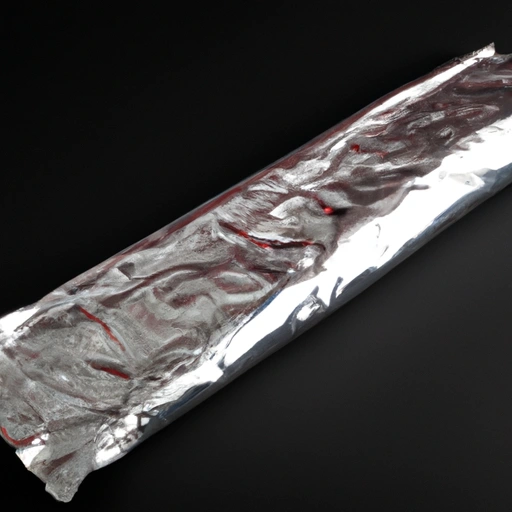Aluminum Foil
Description

Aluminum foil, also known as aluminium foil outside of North America, is a versatile kitchen ingredient known for its ability to conduct heat, resist moisture and odors, and provide an airtight seal. It's a thin sheet of aluminum metal, typically measured in gauges or microns, that has become an essential tool in food preparation, storage, and preservation. Aluminum foil is used globally and comes in various sizes, with measurements often given in inches or centimeters and thickness in millimeters or mils. The convenience and functionality of aluminum foil make it a valuable addition to any kitchen, whether you're an amateur cook or a professional chef.
Common uses
Aluminum foil is commonly used for wrapping food items to maintain their freshness, preparing packets for grilling or baking, lining baking sheets or pans to prevent sticking, and covering dishes to retain heat. It is also used for packaging food for storage or transport.
Nutritional value
Calories
Aluminum foil is not a food and therefore does not contain any calories.
Protein
Aluminum foil does not contain protein, as it is a non-edible product.
Fat
There is no fat in aluminum foil, as it is not consumed.
Carbohydrates
Aluminum foil contains no carbohydrates; it is an inedible metal sheet.
Vitamins
As a non-food item, aluminum foil provides no vitamins.
Minerals
Aluminum foil does not contribute any minerals to the diet.
Health benefits
Aluminum foil itself does not offer health benefits as it is not designed for consumption. Its primary benefit lies in food safety and quality preservation when used for cooking and storage.
Potential risks
While generally considered safe for food use, there is some concern about the migration of aluminum into food, particularly with acidic or spicy foods, which may pose health risks if consumed in large quantities over time. It is recommended to avoid using aluminum foil at high temperatures with such foods to minimize potential exposure.
Common recipes
Aluminum foil is used in a variety of recipes, from grilling vegetables and meats to baking fish or making 'en papillote' dishes. It is also used to tent roasted turkeys or other meats to retain moisture.
Cooking methods
Cooking methods using aluminum foil include grilling, baking, roasting, and steaming. It can be used to create packets for cooking delicate items, or as a cover to prevent over-browning.
Pairing with other ingredients
Aluminum foil pairs well with almost all foods and is especially handy for marinated or seasoned dishes, as it locks in flavors and aromas.
Summary
Aluminum foil is a multifaceted kitchen tool used primarily for its protective and heat-conductive properties in cooking and food storage. While it holds no nutritional value, its utility in preserving food quality and enhancing cooking methods makes it a ubiquitous presence in culinary practices around the world.